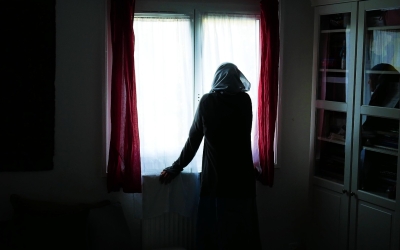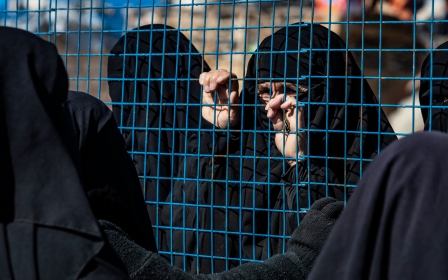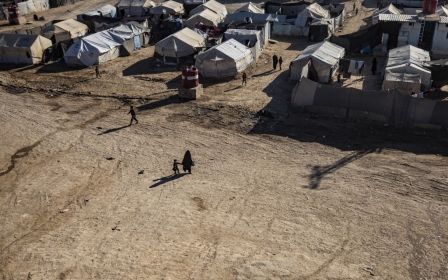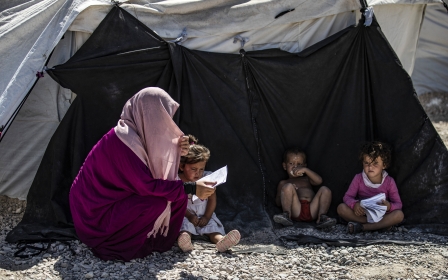France repatriates 54 women and children from Syrian camps
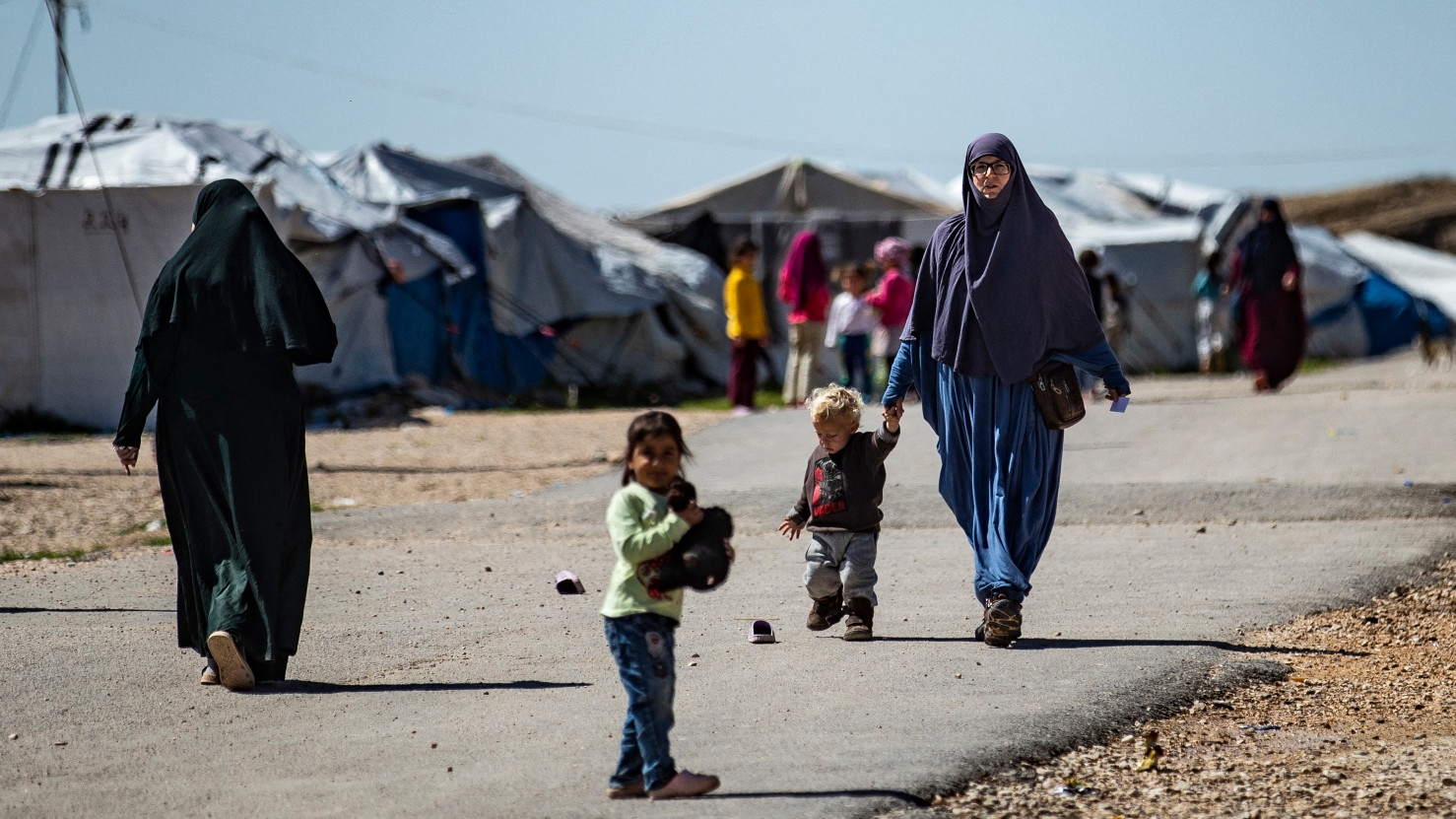
France has repatriated 54 nationals from camps in northeast Syria where families of suspected Islamic State group fighters (IS) are held, just weeks after a European court condemned it for leaving nationals in dire and dangerous conditions there.
Fourteen women and 40 children who had for years lived in tents controlled by Kurdish forces landed near Paris in the early hours of Thursday morning.
This is France’s third repatriation operation in three months. On 5 July, 16 mothers and 35 children were repatriated, and a woman and her two children were brought back in early October.
"The minors have been handed over to child support services responsible for child support and will be subject to medical and social monitoring,” read a press release from the foreign affairs ministry. “The adults have been handed over to the relevant judicial authorities.”
Among the children flown home were seven who were either orphans or separated from their parents, the National Anti-Terrorist Prosecutor's Office (PNAT) said in a statement. The women are between 19 and 42 years old.
Three of the women subject to an arrest warrant were directly presented on Thursday to an anti-terrorism judge to be charged, and 12 others were taken into custody. Among the latter is a 19-year-old taken to Syria when she was a minor, according to the PNAT.
They are among the French women who went - either voluntarily or under duress - to territories controlled by IS in Iraq and Syria and were then captured during the fall of the group in 2019. Many of the children were born in IS-controlled territory or in the camps themselves.
The European Court of Human Rights called on France to re-examine its decision to refuse to repatriate two French women held in Syrian detention camps in a landmark case in September. The case was brought by the parents of the women, who had travelled with their partners to parts of Syria and Iraq then controlled by IS.
The court ruled that the French government would be “expected to promptly re-examine” the request in order to safeguard the women against the “arbitrariness” of the refusal. The ruling did not outright call on the two to be repatriated, however.
The French nationals are among roughly 60,000 women and children who live in two sprawling Kurdish-run camps, al-Roj and al-Hol, in the semi-autonomous Hasakah region of Syria.
‘It’s not over’
The Collective of United Families, a group that brings together families of French people with relatives in the camps, described Thursday’s repatriation as "excellent news” in a press release, saying it seemed to “seal the renunciation of France’s ‘case by case’ policy, which consisted of arbitrarily repatriating specific children". This policy led to the repatriation of 35 French children between 2019-21, the statement added.
"But it's not over: those who remain are waiting," it said. "France has started significant repatriations: it must now go all the way."
Of the many western countries with nationals in the camp, France has the highest number. Hundreds remain in conditions condemned by numerous NGOs and international organisations, all of whom have been pushing countries to repatriate nationals for years.
French government spokesman Olivier Veran told LCI television on Thursday that there were "still a few dozen other children to repatriate… There will be some collective repatriation movements,” he said. “This is happening gradually.”
"I want all these children to come back as soon as possible, four years is very long… a whole childhood," Marie Dose, a lawyer for many of the families, told AFP. "Surely France can’t leave more than 150 children and more than 60 mothers in camps in northeastern Syria for a fifth winter."
Middle East Eye delivers independent and unrivalled coverage and analysis of the Middle East, North Africa and beyond. To learn more about republishing this content and the associated fees, please fill out this form. More about MEE can be found here.


